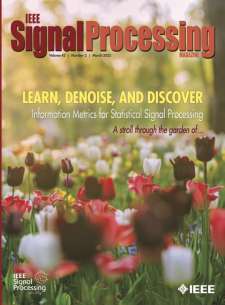Intelligent Machines and Planet of the Apes
Top Reasons to Join SPS Today!
1. IEEE Signal Processing Magazine
2. Signal Processing Digital Library*
3. Inside Signal Processing Newsletter
4. SPS Resource Center
5. Career advancement & recognition
6. Discounts on conferences and publications
7. Professional networking
8. Communities for students, young professionals, and women
9. Volunteer opportunities
10. Coming soon! PDH/CEU credits
Click here to learn more.
Intelligent Machines and Planet of the Apes

I love the last scene from the movie Planet of the Apes (1968), which revealed how the human race destroyed its beautiful planet only to be overtaken by intelligent apes. In that movie, humans were the victims of their own intelligence.
Today, we live in the midst of media frenzy with almost daily reminders about the possibility of humans being overtaken by intelligent machines. Notables like the late physicist Stephen Hawking (1942–2018) and entrepreneur Elon Musk of Tesla and SpaceX fame have issued dire warnings about the existential danger posed to our way of life by the evolution of artificial intelligence (AI). Microsoft founder and philanthropist Bill Gates has been on both sides of the issue, warning about its dangers in one instance and embracing its potential in another. In my view, Gates’ position is the correct one. There is immense potential in the field, with so much good that can be done for society at large, but there are also dangers and important ethical questions. Google’s recent illustration in May 2018 of its digital assistant’s ability to mimic the human conversational style in a very realistic manner has raised eyebrows about the danger of using these machines in deceptive practices.
Many technologies are driving the progress that we are witnessing in intelligent machines, including advances in deep learning and machine learning, image processing, speech processing, and computer vision, as well as the availability of computing power and storage capabilities necessary to process massive amounts of data. It is no exaggeration to state that the progress is mainly driven by the last two technologies, namely, advances in computational power and storage: we now have faster computing machines and almost limitless storage capabilities for vast amounts of data. The foundational theories and algorithms continue to be largely similar to what we have known for decades: backpropagation, online learning, reinforcement learning, stochastic algorithms, pattern recognition, speech and image processing techniques, etc. That is why much of the eye-catching headlines about impressive AI applications are emanating from development labs associated with large companies with great resources to spare on computing and storage such as Google and its DeepMind affiliate, Facebook, Amazon, Microsoft, IBM, and others.
Examples of successful AI applications include Google Translate, Alexa from Amazon, and powerful game machines by DeepMind and IBM capable of defeating world champions on their own turf. In 2017, DeepMind’s AlphaGo playing machine defeated the world’s leading GO player in an impressive feat primarily using reinforcementlearning techniques. The game of GO is particularly challenging given the size of its state space with close to 10170 states; compare this value with the estimated number of atoms in the universe, which stands at about 1080. This is, of course, no indication of the “intelligence” of the AlphaGo machine. Its performance is simply a reflection of a brute force approach to exploration and analysis.
SPS Social Media
- IEEE SPS Facebook Page https://www.facebook.com/ieeeSPS
- IEEE SPS X Page https://x.com/IEEEsps
- IEEE SPS Instagram Page https://www.instagram.com/ieeesps/?hl=en
- IEEE SPS LinkedIn Page https://www.linkedin.com/company/ieeesps/
- IEEE SPS YouTube Channel https://www.youtube.com/ieeeSPS













